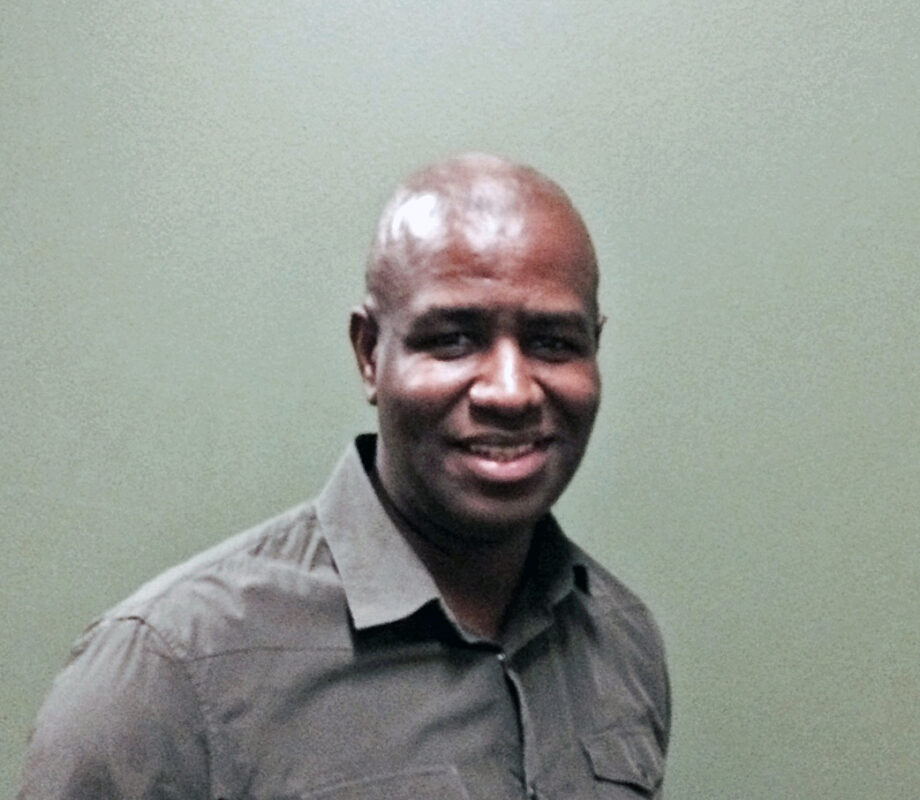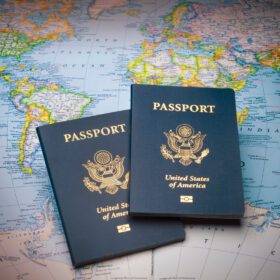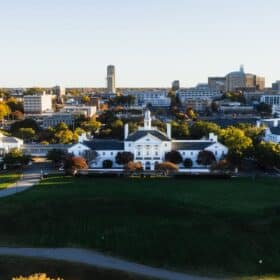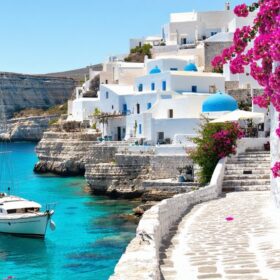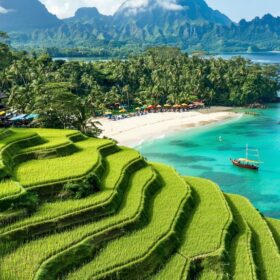Living Abroad in Panama: Your Gateway to Paradise (And Yes, It’s Actually Affordable)
Recent Blog
Ready to explore the world?
Living Abroad in Panama: Your Gateway to Paradise (And Yes, It’s Actually Affordable)
- Joseph Chanlatte
- Travel Blogs, Expat
Discover everything about living abroad in Panama as an expat; from visa options and cost of living to healthcare, safety, and the best communities for foreigners.
So you’re thinking about trading your daily commute for beach sunsets and your expensive healthcare for world-class medical care at a fraction of the cost? Welcome to the club of dreamers who’ve discovered Panama, Central America’s best-kept secret that’s not really a secret anymore.
I’ve been watching expats flock to Panama for years now, and honestly? The hype is real. This isn’t just another tropical paradise that looks good on Instagram but falls apart when you actually try to live there. Panama is the real deal, a country that’s genuinely figured out how to make expat life not just possible, but downright comfortable.
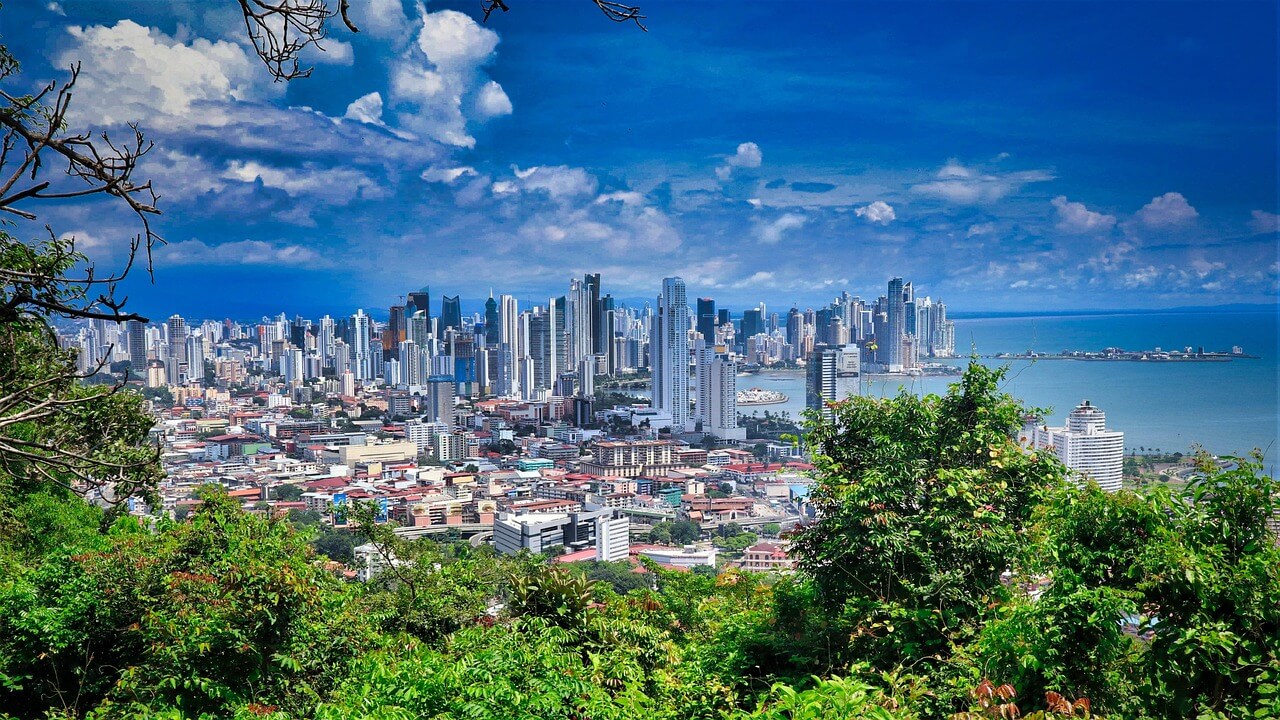
Table of Contents
ToggleTable of Contents
Why Panama Has Become the Expat Darling of Central America
Let’s be honest, living abroad in Panama isn’t just about escaping winter (though that’s definitely a perk). This country has crafted itself into an expat haven with the precision of a Swiss watchmaker and the warmth of your favorite tropical vacation spot.
The numbers don’t lie: over 30,000 American retirees have made Panama their home, and thousands more expats from Canada, Europe, and beyond have joined the party. But what makes Panama so magnetic for foreigners looking to relocate?
First off, the Panama cost of living will make you do a double-take at your bank statement, in the best way possible. We’re talking about a lifestyle that costs 30-50% less than what you’re probably paying back home, without sacrificing quality. And before you ask, yes, they use the US dollar as their official currency, so you can kiss currency conversion headaches goodbye.
The Money Talk: What Does Living in Panama Actually Cost?
Let’s cut through the fluff and talk numbers, because I know that’s what you’re really wondering about. Cost of living in Panama varies dramatically depending on where you plant your flag, but here’s the breakdown that’ll help you budget like a pro:
Monthly Living Costs for Expats in Panama
| Expense Category | Budget Living | Comfortable Living | Luxury Living |
|---|---|---|---|
| Housing | $400-800 | $800-1,500 | $1,500+ |
| Food & Dining | $200-300 | $300-500 | $500+ |
| Utilities | $80-120 | $120-180 | $180+ |
| Transportation | $50-100 | $100-200 | $200+ |
| Healthcare | $50-100 | $100-200 | $200+ |
| Entertainment | $100-200 | $200-400 | $400+ |
| Total Monthly | $880-1,620 | $1,620-2,980 | $2,980+ |
Now, if you’re eyeing Boquete – the mountain town that’s become synonymous with American retirees, expect to pay slightly more for housing but enjoy cooler temperatures year-round. The cost of living in Boquete, Panama runs about 10-15% higher than other expat areas, but many consider it worth every penny for the spring-like climate and established expat community.
Insert image of typical Boquete neighborhood with mountain views here
Visa Options: Your Legal Pathway to Paradise
Here’s where Panama really shines – they’ve made it surprisingly straightforward for expats to establish legal residency. The Panama visa options are diverse enough to accommodate almost any situation, and the government has been consistently expat-friendly (a refreshing change from some other countries that shall remain nameless).
Top Visa Programs for Expats
The Pensionado Program remains the golden ticket for retirees. If you can prove a monthly pension of at least $1,000, you’re in. This isn’t just about residency, it comes with incredible perks including 50% off entertainment, 25% off airline tickets, and discounts on utilities. Retiring in Panama as an American has never been more attractive.
The Friendly Nations Visa is perfect if you’re from one of the 50+ countries on Panama’s VIP list (including the US, Canada, and most of Europe). You’ll need to establish economic ties, think opening a bank account with $5,000 or buying property, but it’s one of the most straightforward paths to Panama residency.
For the younger crowd or career-focused expats, work visas and investment visas provide solid options, though they require more paperwork and higher financial commitments.
Healthcare That Won’t Break the Bank (Or Your Body)
Let me tell you something that might shock you, Panama healthcare for expats is often better than what you’re getting back home, and it costs a fraction of the price. I’m talking about world-class hospitals with English-speaking doctors who actually spend time with you during appointments.
Panama City boasts hospitals like Pacifica Salud and Hospital Punta Pacifica (affiliated with Johns Hopkins) that rival any medical facility in North America. A typical doctor’s visit runs $30-50, and even major procedures cost 60-80% less than US prices.
The country’s Social Security system (CSS) is open to legal residents, providing comprehensive coverage for around $50-100 monthly. Many expats also maintain international insurance through providers like Blue Cross Panama for added peace of mind.
Safety First: Is Panama Actually Safe for Foreigners?
I get this question constantly, and the answer is nuanced. Panama safety for expats is generally excellent, especially in established expat communities. The country has political stability, a growing economy, and police forces that are generally helpful to foreigners.
That said, like anywhere in Latin America, you need street smarts. Stick to well-populated areas, don’t flash expensive jewelry, and use common sense. Expat safety tips for Panama include:
- Avoid walking alone at night in Panama City’s Casco Viejo
- Use official taxis or Uber rather than random street cabs
- Keep photocopies of important documents separate from originals
- Stay connected with local expat communities for real-time safety updates
The expat communities I know feel safer in Panama than they did in many US cities. Crime exists, but violent crime against foreigners is relatively rare.
Where to Plant Your Flag: Best Places for Expats
Choosing where to live is probably the most important decision you’ll make, and Panama offers options for every lifestyle and budget. Here are the best places to live in Panama for different types of expats:
Panama City: Urban Sophistication Meets Tropical Living
If you crave city energy with a tropical twist, Panama City delivers. The capital offers world-class restaurants, cultural events, excellent healthcare, and a thriving business environment. Living in Panama City as an expat means embracing high-rise living with ocean views, but expect to pay premium prices for prime locations.
Boquete: The Retiree Paradise
This mountain town has become legendary among American retirees, and for good reason. Year-round spring weather, stunning mountain vistas, and an established expat infrastructure make Boquete feel like a little slice of Colorado with better coffee and cheaper living costs.
Coronado: Beach Life Made Easy
About 90 minutes from Panama City, Coronado offers beach living with modern amenities. Golf courses, shopping centers, and a large expat community make this the go-to spot for those who want beach life without sacrificing convenience.
Las Tablas and Pedasi: Authentic Panama
For expats seeking more authentic Panamanian culture with fewer foreigners, these Pacific coast towns offer beautiful beaches, lower costs, and the chance to truly integrate with local communities.
Property Ownership: Yes, Foreigners Can Buy Real Estate
Here’s some great news, buying property in Panama as a foreigner is not only legal but encouraged. Panama’s constitution actually guarantees property rights for foreigners equal to those of citizens, which is refreshingly straightforward.
You can own property outright, including beachfront land (unlike many Latin American countries). The process involves a lawyer, a title search through Registro Público, and due diligence, but it’s well-established and reliable. Companies like Panama Equity Real Estate specialize in guiding expats through the process.
Just remember, always use a qualified lawyer and get proper title insurance. The horror stories you hear usually involve people who cut corners on legal representation.
Banking: Opening Your Financial Gateway
Opening a Panama bank account as an expat used to be as easy as showing up with your passport and a smile. Those days are gone (thank international banking regulations), but it’s still very doable with proper preparation.
Major banks like Global Bank and Banistmo work regularly with expats and understand the process. You’ll need:
- Valid passport
- Reference letters from your home bank
- Proof of income
- Utility bill or rental agreement
- Patience (lots of patience)
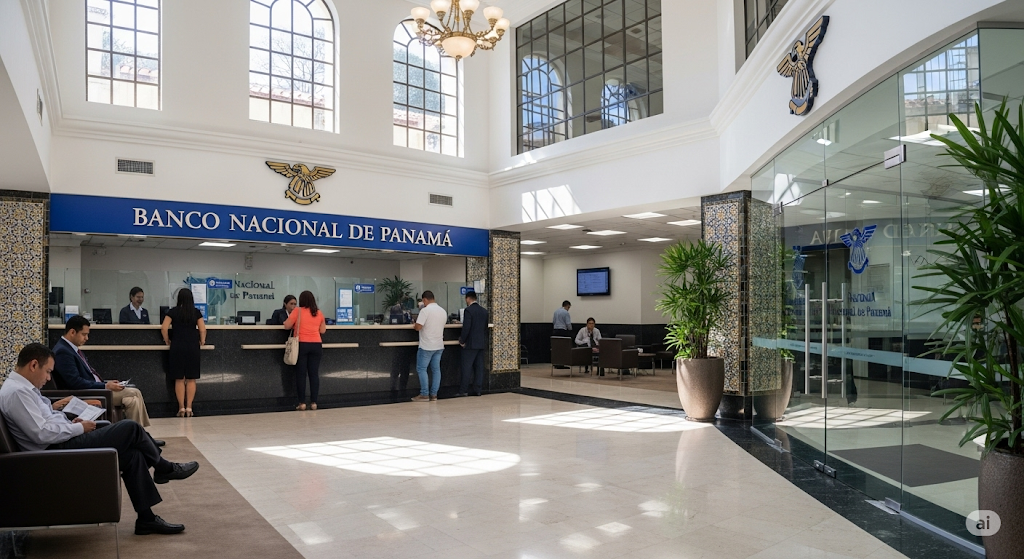
Many expats maintain accounts both in Panama and their home countries during the transition period. The US dollar currency makes this much simpler than in other countries.
The Language Question: Do You Need Spanish?
Let’s be real, you don’t need Spanish to survive in Panama’s expat communities, but you’ll have a much richer experience if you learn some. In places like Boquete or Coronado, you can absolutely get by with English for daily necessities.
However, learning Spanish in Panama opens doors to deeper cultural integration, better prices at local markets, and genuine friendships with Panamanian neighbors. The country offers numerous language schools, and many expats find immersion here more effective than classroom learning back home.
Local Panamanians are generally patient with language learners, and you’ll find people genuinely appreciate your efforts to communicate in Spanish, even if your grammar is questionable.
Climate: Eternal Summer (With a Twist)
Panama’s climate is tropical, which means it’s warm year-round, but there are significant regional variations that can dramatically affect your living experience.
The dry season (December through April) is absolutely perfect, sunny skies, low humidity, and constant breezes. The rainy season (May through November) brings afternoon thunderstorms and higher humidity, but mornings are often gorgeous.
| Region | Average Temperature | Rainfall | Best For |
|---|---|---|---|
| Panama City | 75-85°F | Moderate | Urban living |
| Boquete | 65-75°F | High | Cool weather lovers |
| Beaches | 80-90°F | Variable | Beach enthusiasts |
| Interior | 70-85°F | Low | Authentic culture |
Mountain areas like Boquete enjoy spring-like weather year-round, while coastal areas stay warm but benefit from ocean breezes. Choose your location based on your temperature preferences, this isn’t a decision you can easily change later.
Education: International Schools for Expat Families
Families considering the move often worry about education, but Panama has developed solid options for expat children. International schools in Panama offer American, British, and International Baccalaureate curricula.
Top schools include:
These schools typically cost $8,000-15,000 annually, significant savings compared to private schools in major US cities, while often providing smaller class sizes and more personalized attention.
Work and Business Opportunities
Working in Panama for foreigners requires proper work permits, but opportunities exist across various sectors. The country’s growing economy, particularly in logistics, finance, and technology, creates openings for skilled expats.
Panama expat job opportunities are strongest in:
- International banking and finance
- Logistics and shipping
- Tourism and hospitality
- Teaching English
- Real estate and property management
- Consulting and professional services
Many expats also start their own businesses, taking advantage of Panama’s business-friendly environment and strategic location. Digital nomads in Panama find excellent internet infrastructure in major cities and established co-working spaces.
Technology and Infrastructure
For remote workers and digital nomads, internet and utilities in Panama are surprisingly robust. Major cities offer fiber internet with speeds comparable to North American standards, while Starlink provides excellent coverage in rural areas.
Utility reliability has improved dramatically over the past decade. Power outages still occur but are less frequent, and most expat areas have backup systems. Water quality varies by region, many expats install filtration systems for peace of mind.
Cultural Integration and Community
The Panama expat community is vibrant and welcoming, but the key to true happiness here lies in balancing expat connections with local cultural integration. Panamanians are generally warm and welcoming to foreigners who show respect for local customs and make effort to learn the language.
Expat Facebook groups like “Panama for Expats” provide real-time advice, social connections, and practical support for newcomers. However, don’t let these become your only social outlet – engaging with local communities enriches your experience immeasurably.
Local festivals, community events, and neighborhood gatherings offer authentic ways to connect with Panamanian culture. Many expats find their most meaningful friendships develop with locals who appreciate their interest in Panamanian life beyond just the expat bubble.
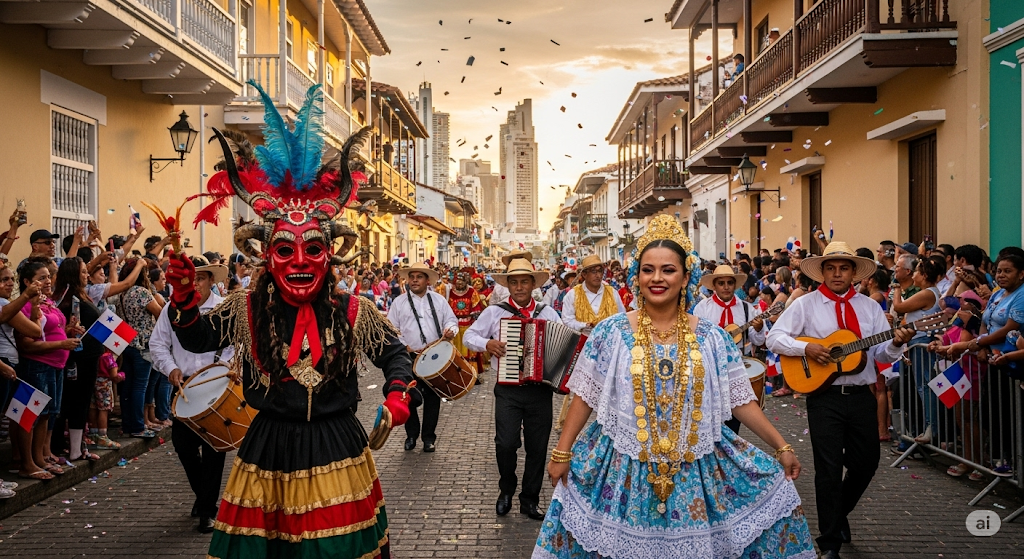
Financial Considerations: Taxes and Pensions
Here’s some welcome news, Panama tax benefits for expats are substantial. The country operates on a territorial tax system, meaning you only pay Panamanian taxes on income earned within Panama. Foreign-sourced income (like US Social Security or pensions) remains untaxed by Panama.
Expats can receive their pensions or Social Security while living in Panama without penalties or complications. The US-Panama tax treaty prevents double taxation, and many retirees find their tax burden significantly reduced.
However, US citizens still must file annual tax returns with the IRS regardless of where they live. Consult qualified tax professionals familiar with expat situations to optimize your tax strategy.
Transportation: Getting Around Your New Home
Panama’s transportation system offers multiple options depending on your location and preferences. Panama City has a modern metro system, extensive bus networks, and reliable taxi services including Uber.
For expats living outside the capital, owning a car becomes more practical. Import duties on vehicles are high, so many expats buy locally or consider the used car market. Driving in Panama requires adaptation to more aggressive traffic patterns, but most expats adjust within a few months.
AirPanama and other regional carriers make domestic travel affordable and convenient, while the country’s location provides easy access to North and South America for international travel.
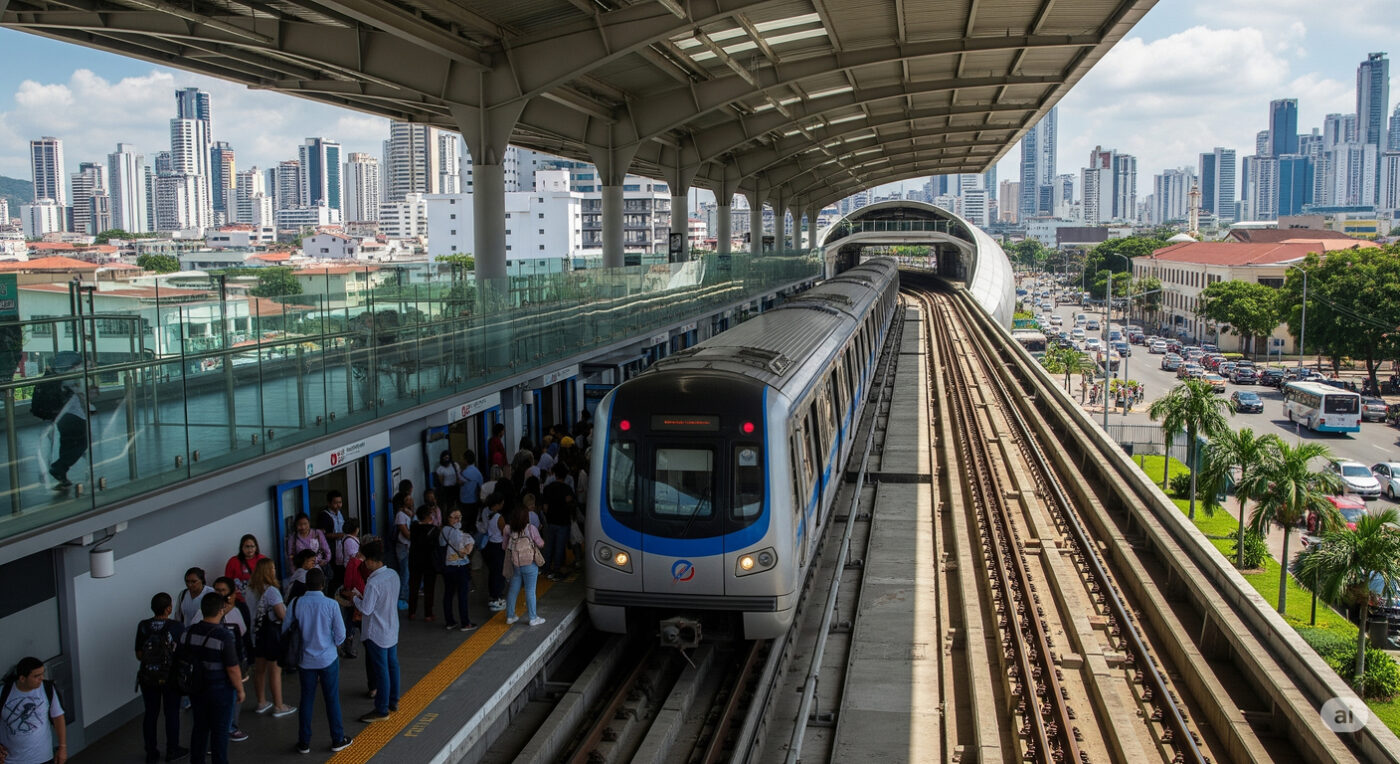
Healthcare Specialists and Medical Tourism
Beyond basic healthcare, Panama has become a medical tourism destination. Specialized treatments, dental work, and cosmetic procedures attract patients from around the world due to high quality and low costs.
Boquete Health & Hospice provides specialized support for expat retirees, while major hospitals in Panama City offer cutting-edge treatments for serious conditions. Many expats find they receive more thorough care and attention than they experienced in their home countries.
Making the Move: Practical First Steps
Ready to take the plunge? Here’s your action plan for moving to Panama:
- Visit First: Take a relocation tour with Panama Relocation Tours to explore different areas
- Legal Preparation: Connect with visa lawyers like Friendly Nations Visa Lawyers to start your residency process
- Financial Setup: Research banking requirements and prepare necessary documentation
- Housing Research: Work with expat-friendly realtors like Panama Equity Real Estate
- Community Connection: Join expat Facebook groups and start networking before you arrive
- Insurance Planning: Arrange health insurance through providers like Assa Compañía de Seguros
- Cultural Preparation: Start learning Spanish and researching local customs
The Reality Check: Challenges You Should Know About
I’d be doing you a disservice if I painted Panama as perfect. Every expat destination has challenges, and Panama’s include:
Bureaucracy moves at tropical speed. Government offices operate on “Panama time,” and simple procedures can take longer than expected. Patience isn’t just helpful, it’s essential.
Language barriers exist outside expat enclaves. While you can survive with English, you’ll struggle with government offices, medical appointments outside major hospitals, and authentic local experiences.
Cultural differences in business practices, social norms, and daily life require adjustment. Punctuality concepts differ, relationship building precedes business, and direct communication styles may be misunderstood.
Infrastructure gaps still exist, particularly in rural areas. Internet can be unreliable, power outages occur, and some services available in major cities don’t extend everywhere.
Success Stories: Real Expat Experiences
Let me share some Panama expat testimonials that illustrate the reality of life here:
Maria, a Canadian retiree in Boquete, reports her monthly expenses dropped from CAD $4,200 to $1,800, while her quality of life improved dramatically. She emphasizes the importance of learning Spanish and engaging with local culture.
David, an American digital nomad in Panama City, praises the business environment and international connectivity while warning about the bureaucratic patience required for legal processes.
The Johnson family from Texas moved to Coronado with teenage children and found the international school excellent, though the cultural adjustment took longer than expected.
These stories highlight both opportunities and challenges, but consistently emphasize that preparation and realistic expectations lead to successful transitions.
Your Next Steps: From Dream to Reality
Living abroad in Panama isn’t just a retirement fantasy or digital nomad dream, it’s a genuine opportunity for a different kind of life. Whether you’re seeking Panama retirement paradise, launching a business, or raising a family in a tropical setting, this country offers infrastructure, affordability, and opportunity that few destinations match.
The key is approaching this move strategically rather than emotionally. Visit multiple times, explore different regions, connect with established expat communities, and prepare thoroughly for the legal and logistical requirements.
Panama won’t solve all your problems or transform you into a different person, but it offers a unique combination of tropical living, modern amenities, financial advantages, and cultural richness that has attracted tens of thousands of expats for good reason.
The question isn’t whether Panama could work for you, it’s whether you’re ready to make it work. The infrastructure exists, the community is welcoming, and the opportunities are real. What happens next is up to you.
Ready to explore your Panama possibilities? Start by joining online expat communities, researching visa requirements for your situation, and planning your first exploratory visit. The dream of living abroad in Panama is closer than you think, and yes, it really can be as good as it sounds.
Travel is one of the best gifts I’ve ever given myself, and I want others to experience that same magic. If you’re a travel enthusiast, the faveplus travel site is an all-in-one guide packed with real, actionable steps to help you get out there and explore the world.
